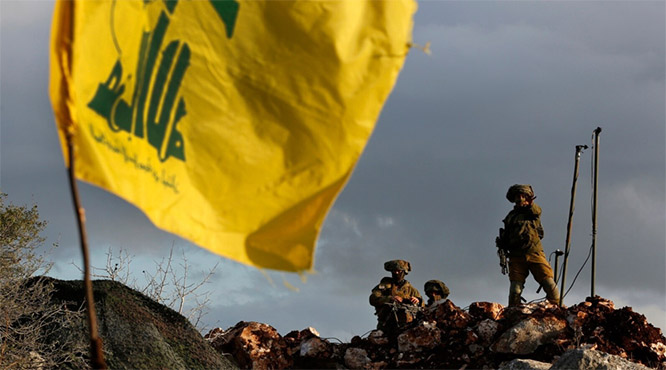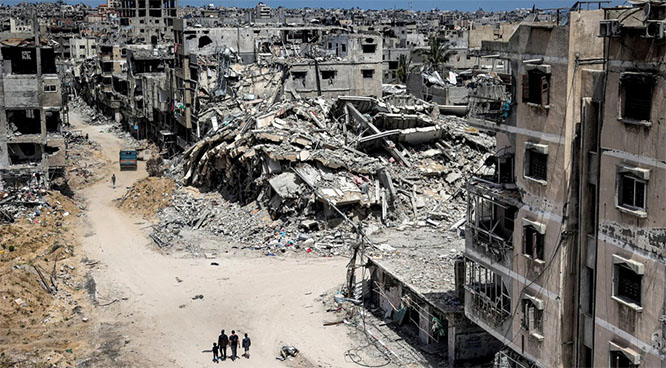Dubai, Jun 21: Qatar’s 2008 bailout of Barclays has come back to haunt the British banking giant, with the leveling of fraud charges against it and four former senior executives over multibillion-pound deals nine years ago.

The Serious Fraud Office (SFO), the UK’s top financial prosecutor, announced charges as Qatar’s financial sector showed signs of further strain under the weight of sanctions brought to bear by a coalition of neighboring countries including Saudi Arabia and the UAE.
It has for months been considering action over the undisclosed terms of £6.1 billion ($7.7 billion) worth of deals that saw Qatari investors buy shares to prop up the bank at the height of the global financial crisis, after an investigation that began in 2012.
The SFO on Tuesday announced charges of conspiracy to commit fraud and provision of unlawful financial assistance against the Barclays parent company and four executives who were at the heart of the deals.
The highest profile is John Varley, former group chief executive, who becomes the first boss of any global bank to face criminal charges as a result of the 2008 crisis, which sparked a global crash and recession.
The others were well-known deal-doers at the bank: Roger Jenkins, former chairman of investment banking in the Middle East; Thomas Kalaris, former head of wealth and investment management; and Richard Boath, former head of financial institutions in Europe.
The SFO charges named Qatar Holding, one of the troubled country’s investment vehicles and Challenger Universal, an investment unit set up by former Qatari Prime Minister Hamad bin Jassim Al-Thani, as counterparties to the deals but no British criminal actions have been brought against any Qatari citizens.
Separately, Qatari bankers on Tuesday reported that the Qatar Investment Authority (QIA), its main sovereign wealth fund, made billions of dollars worth of deposits in local banks in an effort to head off any liquidity crisis as fears grew in the country that the current blockade by its neighbors might spark a run on financial institutions there.
In 2008, Barclays was facing its own liquidity crisis as the strains of the global financial crisis weighed on all the big British banks. Some were forced to swap their independence for government bailout funds to avoid bankruptcy.
Barclays, under Varley, chose instead to seek assistance from the Arabian Gulf in a set of transactions that brought in billions of pounds of capital. The first tranche involved investors in Qatar and in Abu Dhabi, the second just Doha investors.
Barclays agreed to pay Qatari investors £322 million in return for the capital injections in side deals that were not disclosed at the time and which the SFO alleges amounted to fraud. There are no allegations against the Abu Dhabi investor.
A third transaction in 2008 involved Barclays making available a loan of $3 billion to Qatar, which the SFO alleges amounted to unlawful financial assistance.
Barclays said it was considering its position in relation to the charges. “Barclays awaits further details of the charges from the SFO,” it said.
The former executives either declined to comment or professed their determination to fight the charges. Jenkins’ lawyer said he intended to vigorously defend against the charges. “As one might expect in the challenging circumstances of 2008, Mr. Jenkins sought and received both internal and external legal advice on each and every aspect of the accusations leveled today by the SFO,” he told the Financial Times.
Boath is involved in a separate action against the bank in a claim for wrongful dismissal over information he provided the SFO in the course of their investigation.
Barclays is also fighting a £720 million claim from financier Amanda Staveley, who was involved in the 2008 transactions.
The charges come at a politically sensitive time for both Qatar and the UK. The former is resisting pressure from its neighbors in the Gulf to halt alleged support for terrorist organizations, which has led to the cutting of economic ties with its two biggest neighbors, Saudi Arabia and the UAE.
On the liquidity measures taken recently, the Qatar Central Bank (QCB) told Reuters: “QIA regularly places deposits in local banks, this is normal.”
Qatar is also a big investor in Britain, with extensive real estate interests and ownership of high-profile assets like the Harrods department store.
Britain, seeking to make up lost investment in the wake of the impending withdrawal from the EU, has made no secret of its need for stronger investment links with the Gulf.








Comments
Add new comment